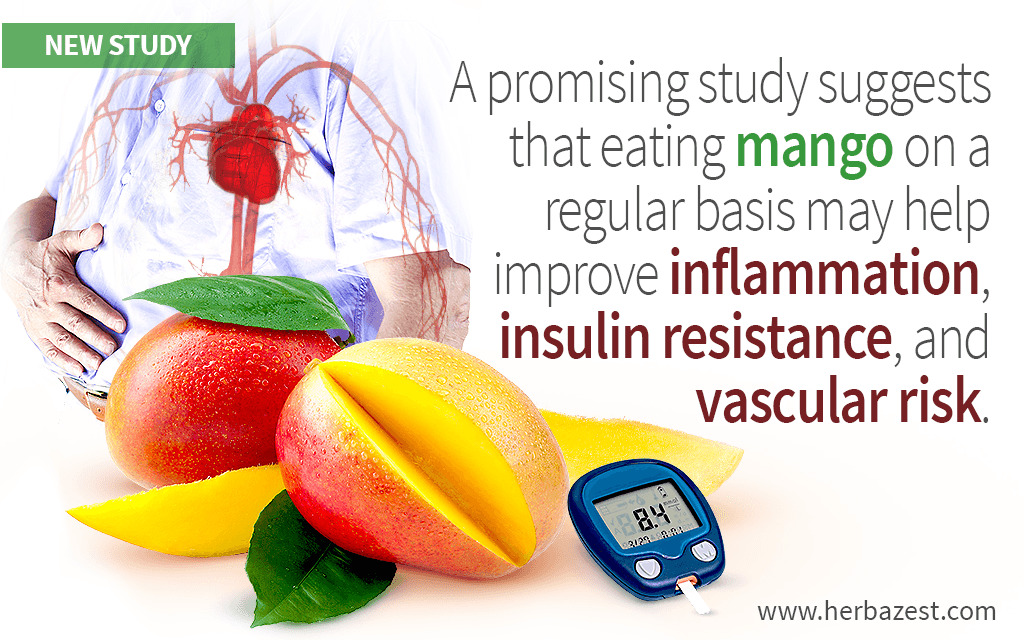Mango is a tropical fruit that is full of flavor and health benefits. It is fat-free and relatively low in sugar, with little caloric value, which makes it ideal for weight management. Mango is not only considered hypoglycemic but also promotes eye health and speeds up wound healing. However, a recent clinical trial suggests that mango polyphenols, particularly galloyl derivatives (GD), may also be effective in the prevention and treatment of metabolic disorders.
The Study
The clinical trial, published in The FASEB Journal (April 2017) and led by a team of researchers at Texas A&M University, was conducted on 21 lean and obese adults between the ages of 18 and 55 years old. All participants consumed 400 g of mango pulp per day during 42 days. Their levels of inflammatory cytokines, metabolic hormones, and lipids were analyzed before and after the treatment.
The Results
After 42 days of daily mango consumption, only the lean participants of the study showed a reduction in their blood pressure, whereas the obese individuals didn't report changes. Conversely, when tested for sugar in blood, the obese individuals exhibited decreased glucose levels, while their lean counterparts remained the same.
All participants were tested for plasminogen activator inhibitor 1 (PAI-1), a protein that has been linked to inflammatory processes. PAI-1 levels are usually high in patients with thrombotic disease and atherosclerosis, and it is a core feature of insulin-resistance syndrome. When tested after the study, both lean and obese individuals showed reduced levels of this protein compared to their initial results.
When it comes to fat metabolism (mainly cholesterol and triglycerides), no significant changes were observed in the participants' lipid profile.
What Does This Mean?
While consuming mango helps lean individuals lower their blood pressure, it contributes to glucose level regulation in obese adults, also leading to a decreased risk of inflammation and cardiovascular diseases in both groups.
Although further studies are necessary to corroborate these results, this small-size human trial offers valuable information about the therapeutic potential of mango polyphenols in the treatment of obesity and metabolic disorders.
Sources
- Journal of Thrombosis and Haemostasis, Plasminogen activator inhibitor 1 (PAI-1) in plasma: its role in thrombotic disease, 1995 | Plasminogen activator inhibitor-1, inflammation, obesity, insulin resistance and vascular risk, 2003
- The FASEB Journal, Daily Mango (Mangifera Indica L.) Consumption for 42 Days Differentially Modulates Metabolism and Inflammation in Lean and Obese Individuals, 2017




